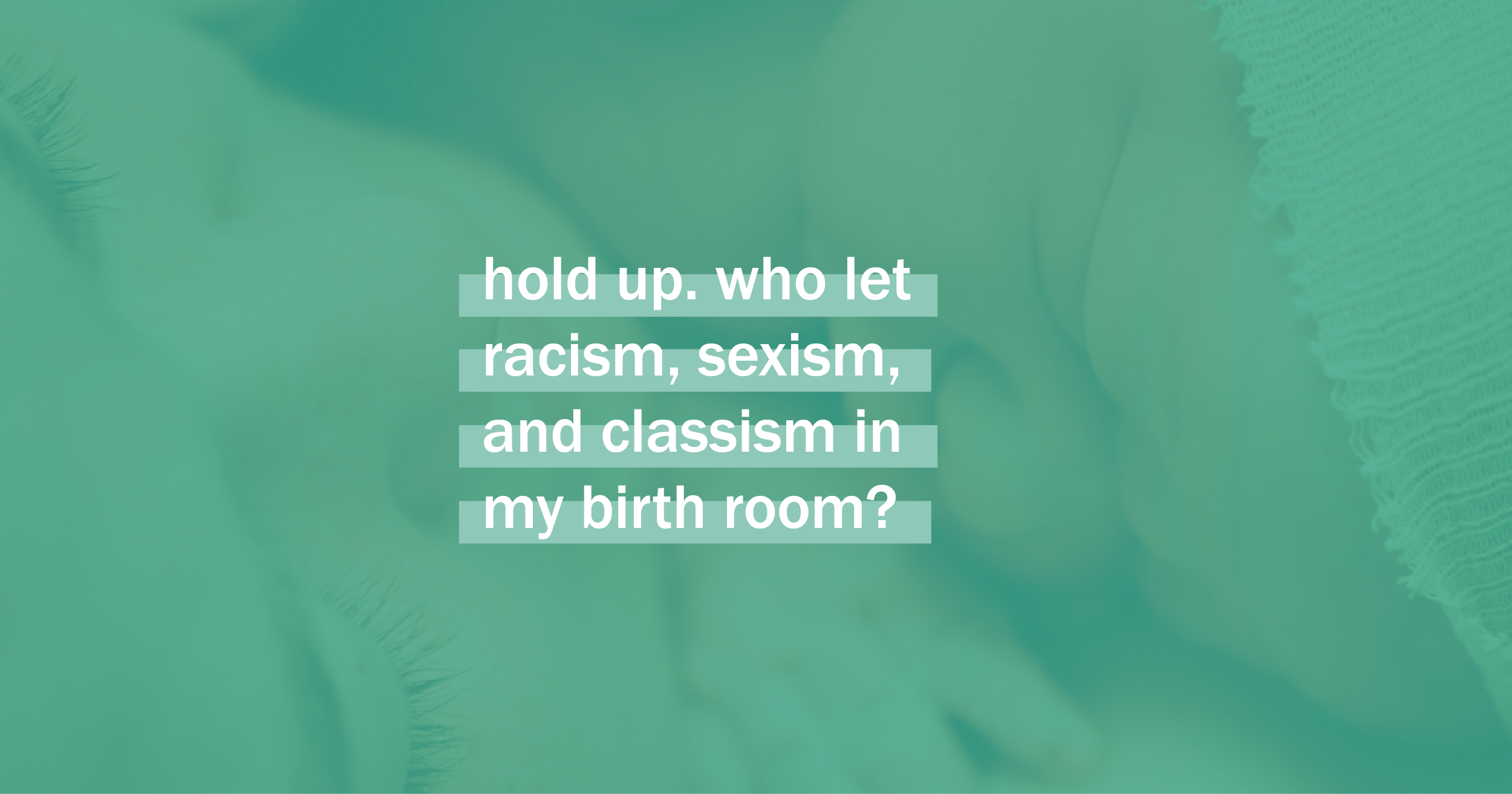1. REPRODUCTIVE HEALTH, RIGHTS AND JUSTICE: WHAT'S THE DIFF?
Reproductive health is considered the state of complete physical, mental and social well-being in all matters relating to the reproductive system, and not merely the absence of disease or infirmity, at all stages of life.
Reproductive rights are the freedoms individuals have to make decisions about their own reproductive system and health services.
Reproductive justice refers to the protection of those rights, calling out structures (within and outside of health spaces) that oppress communities causing negative reproductive health outcomes and denying individuals reproductive rights.
2. NOT JUST ABOUT WOMEN. NOT JUST ABOUT BIRTH. NOT JUST ABOUT ABORTION EITHER.
A few years ago I would have pretty narrowly associated this issue with "pregnant women," because my idea of reproductive health was centered around the experiences of women and birth, and the deep-dark-scary-abyss-like controversy of abortion.
The reality is that reproductive health affects all people, so when we think about it as a major issue in our country, we have to include the experiences and concerns of:
women, men, trans individuals, POC, LGBTQ, immigrants, communities in poverty, faith communities, incarcerated people, youth, etc.
Here's my question to those who may feel uncomfortable with one or more of the communities listed above: When has alienating an individual / community EVER led to social, moral, or any other kind of good?
Freedom does not exist in a vacuum. We are all deeply and inextricably tied to each other, whether we want to be or not.
Lastly, I've learned to broaden my understanding of reproductive health as a birth vs. abortion conversation. The experiences of people who get pregnant include more than pregnancy, and that simple reason is enough to demand that we ensure there is access to safe care for all experiences including birth control, pregnancy, birth, miscarriage, adoption and abortion.
3. WHAT'S THE FUSS WITH REPRODUCTIVE HEALTH? WHAT'S THE PROB?
There is not currently access to safe care for all reproductive health outcomes.
Why? Because it's not a priority in the U.S. for those who have the power and ability to make it so (restricting access is in fact a priority for many of those individuals).
Because many of the individuals who are most negatively affected by the lack of access are not valued or widely recognized in our society (except within their own subcultures).
Because instead of practicing constructive empathy, we're busy.
Because even if we want to practice constructive empathy, the systems that perpetuate the status quo are so convoluted and difficult to engage with that it's draining.
Because even when we DO practice constructive empathy and take the time and energy to navigate the difficult systems (individually and collectively), the status quo is so deeply entrenched that success sometimes feels minimal / ever-distant, or flip flops in a one step forward, three steps backward way.
4. WHAT'S RACISM / SEXISM / INCOME / EDUCATION, ETC. GOT TO DO, GOT TO DO WITH IT?
Here are a few resources for you to consider:
Remembering Anarcha, Lucy, and Betsey: The Mothers of Modern Gynecology
Gynecology was founded by a man who experimented on slave women. The end.
America's Shocking Maternal Deaths
Rates of death during pregnancy and childbirth have dropped in many nations... not including the United States. Oh, and guess what? Black pregnant people die at higher rates than white pregnant people.
The Effect of Girls' Education on Health Outcomes: Fact Sheet
From a world-wide perspective, "Women with at least some formal education are more likely than uneducated women to use contraception, marry later, have fewer children, and be better informed on the nutritional and other needs of children."
What You Should Know About Planned Parenthood & Fact Check: How Does Planned Parenthood Spend That Government Money?
I chose these two because the first offers a really productive and brief overview, while the second takes a more critical look. Still about 75% of what Planned Parenthood does is treat STDs/STIs and provide contraception services. Meanwhile, abortion services are estimated to fall somewhere between 3% to 12%. And how much federal money goes to abortion? Near 0%.
I think it's worth noting that less access to safe abortion care is correlated with increased DIY abortion attempts. What should that mean to those who don't support safe access? I'd like to hear people smarter than me discuss that.
In the pursuit of brevity I'm moving on. But you don't have to. If you want to, now go do ya own research.
5. MORE ABOUT THESE VERY IMPORTANT SERVICES.
Birth Control/Contraception. Methods of preventing pregnancy. Includes education on safe sex and medical support.
Note: "Nearly a third of women who start a new type of birth control stop within a year, according to one recent study, largely because of changes in their insurance coverage." (link)
Learn More: Weighing the Health Benefits of Birth Control // In Texas, Abstinence-Only Programs May Contribute To Teen Pregnancies // It’s Time To End The ‘Birth Control Causes Miscarriage’ Myth





































